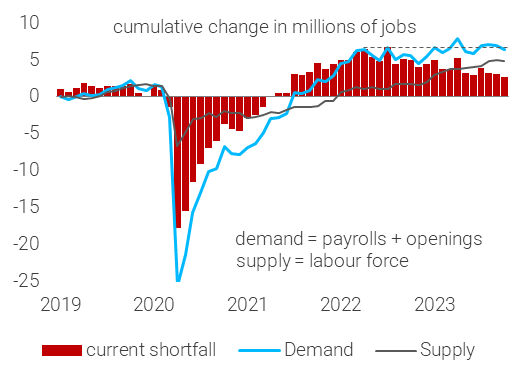
MD Global Macro @TS_Lombard, macro themes/research/risks, central-bank specialist, started career at HM Treasury in late 90s, ex ABN AMRO, AC Milan fan
9 subscribers
How to get URL link on X (Twitter) App










 2) This is usual. Investors cant remember the last time CBs made f'casts like this. CBs used to be cheerleaders, who always talked up their economies (H/T ECB 😉). Is this a sign of just how inevitable recession has become? Or is it policy INTENT - maybe officials WANT recession
2) This is usual. Investors cant remember the last time CBs made f'casts like this. CBs used to be cheerleaders, who always talked up their economies (H/T ECB 😉). Is this a sign of just how inevitable recession has become? Or is it policy INTENT - maybe officials WANT recession



https://twitter.com/FedGuy12/status/1576243844060176384?t=ZOeaj2cEf4clijXMY2lUQw&s=19And CBs generally have a better understanding of what banks are doing than non-banks. My friend here is joking, but the substantive point is that regulators have had plenty of warning (unlike in 2008)
https://twitter.com/PolemicTMM/status/1576321920286326784?t=ZOeaj2cEf4clijXMY2lUQw&s=19